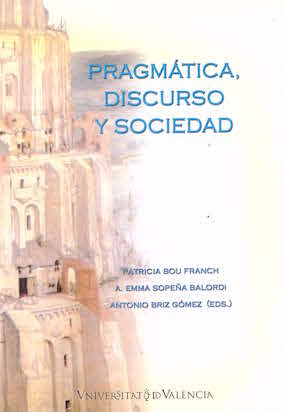Sobre algunos recursos fónicos del español y su proyección sociopragmática: atenuación y cortesía en la conversación coloquial
DOI:
https://doi.org/10.7203/qfilologia.12.4094Paraules clau:
prosodia, cortesia, entonació, conversa, espanyol col·loquial Resum
Resum
Aquest treball intenta demostrar que l'expressió d'atenuació i cortesia en el diàleg quotidià són efectes habitualment expressats a través dels recursos fònics en general i suprasegmentals en particular. D'aquesta manera, al costat dels mecanismes d'índole morfològica, sintàctica, lèxica, semàntica, etc. habitualment tractats en estudis especialitzats, també la participació del component fònic ha de ser tinguda en compte en aquest cas, especialment, si tenim en compte que la llengua és oral per naturalesa i, per tant, primer és el so (segmental o suprasegmental) i després la seva articulació lingüística en nivells d'anàlisis.
 Descàrregues
Descàrregues
Descàrregues
Com citar
-
Resum464
-
PDF (Español)367
Número
Secció
Llicència
 Este obra está bajo una licencia de Creative Commons Reconocimiento-NoComercial-SinObraDerivada 4.0 Internacional.
Este obra está bajo una licencia de Creative Commons Reconocimiento-NoComercial-SinObraDerivada 4.0 Internacional.
Tots els documents inclosos a OJS són d'accés lliure i propietat dels seus autors i/o institucions editores, i per tant, qualsevol acte de reproducció, comercialització, comunicació pública o transformació total o parcial necessita el consentiment exprés i escrit d'aquests.
Authors who publish with this journal agree to the following terms:
- Authors retain copyright and grant the journal right of first publication with the work simultaneously licensed under a Creative Commons Attribution License that allows others to share the work with an acknowledgement of the work's authorship and initial publication in this journal.
- Authors are able to enter into separate, additional contractual arrangements for the non-exclusive distribution of the journal's published version of the work (e.g., post it to an institutional repository or publish it in a book), with an acknowledgement of its initial publication in this journal.
- Authors are permitted and encouraged to post their work online (e.g., in institutional repositories or on their website) prior to and during the submission process, as it can lead to productive exchanges, as well as earlier and greater citation of published work (See The Effect of Open Access).



